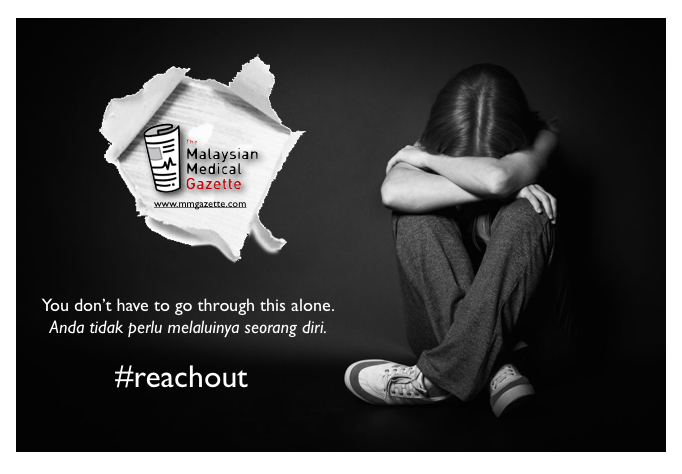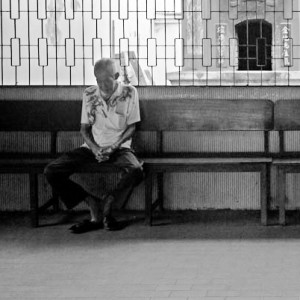Mental illness has been recognized since prehistoric times and has been dealt with by various methods. Archaeological findings reveal skulls with holes bored in them, possibly as a means to release demons. The ancient Greek physician Hippocrates attributed mental illness to “imbalanced humours”. Avicenna used persuasion and different remedies to cure his patients. Mental illness has also been associated with witchcraft, resulting in organized witch hunts. Lobectomies (surgical removal of part of the frontal lobe of the brain) were once an accepted form of treatment. It is only in modern times that medications have made an appearance in the field of mental health.
Care of the mentally unwell is gradually moving away from the days of institutionalization and physician-focused management. Instead, treatment is becoming progressively community based, with emphasis on the biopsychosocial model – a holistic method involving medications, rehabilitation and education. It is an approach in which community nurses, occupational therapists, counsellors, family members and spiritual leaders play an active role in a patient’s recovery. This has reduced the incidence of relapse and allows integration of the patient into society as a functional individual.
Although there has been encouraging progress in the treatment of mental illness, stigma remains an obstacle to optimal recovery. Stigma, a word of Greek origin, means “to mark”. It refers to negative beliefs attached to something; beliefs that shape attitudes and behavior. Canadian sociologist Eric Goffman defined stigma as “a deeply discrediting attribute”.
Stigma can be divided into two types – enacted and felt. Enacted stigma is an act of discrimination or prejudice by one party towards another. For example, a person who was overlooked for a job promotion due to his mental illness is a victim of enacted stigma. Conversely, felt stigma is the fear of being discriminated, as in the case of a person who refuses to leave home, as he is afraid of being ridiculed by his neighbors. Both forms of stigma cause loss of confidence and may even precipitate aggressive behavior that further propagates the negativity linked with mental illness.
Stigma causes a significant reduction in quality of life. It increases the risk of unemployment, poor social support and low self-esteem. Feeling rejected and unwanted, patients are less likely to seek treatment. This in turn results in frequent relapses and hospital admissions, adding to the already mounting health care burden worldwide.
A survey among people living with mental illness in the UK between 2010 and 2011 showed that 85% experienced discrimination. Half of those felt that the situation has not changed in recent years. Closer to home, a study in Hospital Taiping in 2009 revealed that most patients with mental illness felt they were disliked, unfairly treated and were avoided by their family members.
One of my most memorable patients is a female teacher who developed schizophrenia. Her disease remained undiagnosed as she lived alone, shunned by loved ones who did not understand her behavior. She eventually lost her job. As her illness progressed, so did her paranoia. Finally, she was arrested and brought to the hospital after she was found throwing stones at passing cars, believing that the drivers were out to harm her. Although her condition improved with appropriate treatment, her family continued to avoid her. They sent her to a nursing home when she was discharged from the hospital.
Stigma can be easily overcome with three simple steps – contact, education and protest. Contact can be increased by taking time and effort to become acquainted with persons with mental illness. It is imperative to be non-judgmental and to approach them with an open mind. The more personal contact developed, the less likely that negative beliefs will take hold. Awareness can be achieved through educational materials addressing common misconceptions about mental health. Lastly, there needs to be a collective voice against stigma, via campaigns and other methods.
A patient’s recovery can be accelerated once stigma is overcome and better support is available. After months of following up with my patient and spending time to educate her family about her illness, they moved her out of the nursing home. She is now living with her loved ones and her condition has improved dramatically. It is unfortunate that happy endings like this are few and far between.
*Special thanks to Dr. Chua Li-Shun.
Dr. Eugene Koh (MB BCh BAO, Penang Medical College) is a psychiatric trainee lecturer in a local university.
Sources
- Origin of Mental Illness. http://www.healthline.com/galecontent/origin-of-mental-illnesses. 2003.
- Noggle, Chad A, Raymond D. The neuropsychology of psychopathology. Springer Publishing Company, 2012. 3-9
- Mohit, A.. Mental health and psychiatry in the Middle East: historical development. Eastern Mediterranean Health Journal 7 (2001): 336-347.
- E Goffman. Stigma: Notes on the Management of Spoiled Identitiy. 1963
- NHS. Attitudes to mental illness- 2011 survey report. 2001
- Alison J G. Stigma in Psychiatry. J R Soc Med 2002;95:72-76
- Peter B. Psychiatric Stigma. British J Psy 2001; 178:281-284
- Tuti MD et al. Stigma Arising From Family Members of The Mentally Ill Patients in Hospital Taiping. Malaysian Journal of Psychiatry 18.1 (2010).. MJP Online Early 01-02-09
[This article belongs to The Malaysian Medical Gazette. Any republication (online or offline) without written permission from The Malaysian Medical Gazette is prohibited.]



Nice article doctor.me myself have an experience dealing with psychiatric problems.they really need family support as the psychiatric problems is a time-dealing recovery process.I also agree that our community should be more understanding and to change the ‘stigma”,it really needs a wholly cooperation among physician,ppatient,family and community.wallahualam
Dear Izatzahin,
Thank you for your comment. Family support is very important in the recovery process. Hopefully, as you said, our community will gradually reduce the stigma faced by the patients.
Dr Eugene
Thank you for a wonderful article.
Yes. Stigma and mental health is strongly coined together and this is well known all over the world. What we need to do is to educate ourselves regarding the nature of the condition and how to overcome difficulties in order to understand and help the client in facing his or her condition. By knowing and receiving the correct treatment, the client would be able to function normally in the community of which other parts of the world, for example New Zealand, are doing these.
Hopefully our community will come to understand the nature of the condition.
Dear Rahmat,
Thank you for your comment and kind words. You’re right. With the appropriate education, be it for healthcare professionals or the public, much positive changes can be brought about.
Dr Eugene
Interesting article… Lots of research and insight into the subject ….